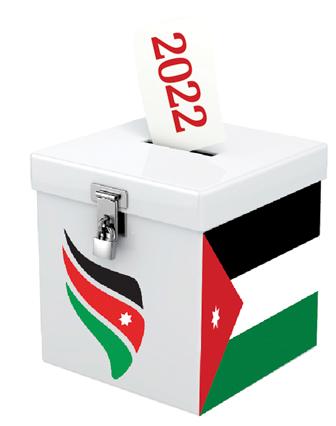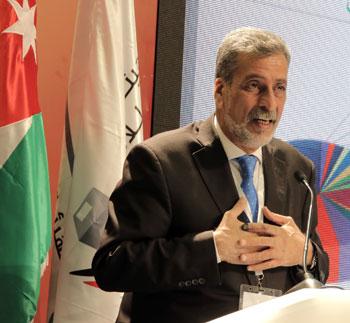You are here
‘Post-election clashes were minimal, individual acts’
By Suzanna Goussous - Sep 24,2016 - Last updated at Sep 24,2016

Lawmakers in the 17the Lower House attend a session in this file photo (Photo by Nader Daoud)
AMMAN — The clashes that occurred after the announcement of election results were “individual acts”, resulting from high expectations for candidates and a “lack of sportsmanship”, officials and a sociologist said on Saturday.
A few protests and fights broke out across Jordan as results were announced in Tuesday’s parliamentary elections, said Public Security Department Spokesperson Lt. Col. Amer Sartawi, who noted that some people were referred to court.
“In any electoral procedure, clashes are expected to take place. Whether they were verbal insults or minor physical attacks; we had everything under control in different areas around Jordan,” Sartawi told The Jordan Times.
The Independent Election Commission (IEC) President Khaled Kalaldeh said the clashes and fights were minimal, compared to the professional work that went into this year’s elections.
“Electing someone means there is a possibility they will not make it to Parliament. Most of the candidates who did not receive sufficient votes behaved logically. From more than 1,200 candidates, only 130 won,” he told The Jordan Times.
Kalaldeh said most of the clashes were verbal.
“The integrity of the 2016 elections was very high. The transgressions and illegal acts did not reach a high percentage,” Kalaldeh, a former minister, said.
During the 2013 electoral session, around 2,270,000 citizens were registered to participate, while this year, around 4,140,000 were eligible to vote.
After omitting the number of Jordanians abroad and security personnel, around 2,800,000 citizens were eligible to vote this year, more than half of whom participated.
“It is a very promising sign to have more than half of the eligible citizens take part in the elections. We had almost 1,492,000 Jordanians participate this year,” Kalaldeh added.
Former Amman MP Abdul Rahim Biqaai said post-election fights and clashes were mostly due to financial reasons.
“The financial need and the promises made by candidates to people who are in need are what generate problems, especially if the voter has responsibilities towards a family,” Biqaai told The Jordan Times.
As a member of the National Democratic Institute, which was among the international organisations that monitored the polls, Biqaai said integrity and credibility were high compared to previous years.
He said the capital witnessed “very few” violent acts during and post elections, while in other governorates the number was slightly higher, but no higher than previous years.
University of Jordan sociology Professor Majd Adeen Khamash said the cause of clashes after the announcement of results was the lack of sportsmanship among voters, adding that some people had a hard time accepting the results.
“In schools, we train our children to accept losing and to be logical when it comes to competitions, but many people do not think reasonably when it comes to losing,” he added.
Starting fights after elections, according to Khamash, is caused by “a lack of the sense of responsibility towards society”.
He added that the clashes between rival supporters were “individual acts” which “do not represent the whole group or family”, but were caused by a “temporary reaction” to the election results.
Related Articles
AMMAN — Chairman of the Independent Election Commission (IEC) Khaled Al Kalaldeh on Wednesday said the final results of the governorat
AMMAN — Around 1.3 million people cast their ballots in the parliamentary elections on Tuesday to elect 130 MPs who would represent them for
AMMAN — Voting will be repeated at a polling station in the Central Badia after violations were uncovered at the centre’s ballot boxes, the



















